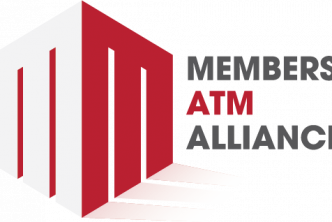By James Bullard
Senior Risk Consultant, CUNA Mutual Group
Over the past two to three months, credit unions have certainly faced unprecedented times. In fact, if you’re like many; you are probably ready to move on. Through this time, credit unions had to:
- Transition a large percentage of employees to remote working arrangements
- Close lobby locations
- Limit in-person loan applications and account servicing to by appointment only
- Embrace digital technology and serve your members virtually
COVID-19 (Coronavirus) put financial institutions under stress and created the need for personalized digital solutions. In fact, strong capital foundations and visionary leadership has never been more important. And, we’ve heard some amazing success stories from credit unions demonstrating the resiliency of our industry.
When thinking about the COVID-19 impact, look how credit union business adapted and shifted to meet the needs of employees and members. Consider the risks that credit unions also faced and continue to face under this “new normal”.
One significant risk, for example, is how the inherent risk of your loan portfolio – the largest earning asset of your credit union – has increased dramatically.
Many credit union members may be extending payments because they are nervous about the future, but not necessarily because they have experienced income disruption. Instead, members are likely skipping payments to proactively hang on to cash in preparation for whatever may come next and to prepare for a potentially longer cycle of recovery.
To protect the credit quality of the loan portfolio, some credit unions are:
- Waiving fees for loan deferrals or extensions
- Waiving late fees
- Offering credit counseling and payment accommodations including
- Payment deferrals or skip-a-pay
- Extending due dates to avoid negative credit bureau reporting
Many credit unions also waived fees during the pandemic outbreak – such as those connected to ATM usage, overdrafts, and late payments – and properly disclosed these fee waivers on their websites. to specifically state the period in which the fee waivers apply.
However, keep in mind that your credit union has options to mitigate risk and losses. For example, instead of automatically granting a 90-day payment deferral, maybe you want to consider one month at a time. While this approach creates some additional administrative work, it can help you manage liquidity risk. Another option may be to offer a 50% reduction in the payment – again, another way to mitigate liquidity risk.
No matter your decision, you must be strategic and remain compliant. Now is the time to dot all the i’s and cross all t’s. While examiners will offer some grace when reviewing your COVID-19 response; how well you document your actions could be a differentiator in how your portfolio administration is perceived.
A suggested practice is to develop and follow a COVID-19 response plan – one that includes how you will handle loss mitigation and emergency loans. Define your parameters, implement and document that the loan is a part of your pandemic response plan – either on your core system, in the loan file, or both. This will allow you to monitor COVID-19 related loans for performance and categorize any losses within your loan loss reserve.
Executing a Digital Lending Strategy
Another effective way to service your members during a pandemic, or following any disaster, is to execute on a digital lending strategy. With in-branch interaction significantly impacted by government mandated shelter-in-place requirements; many credit unions used COVID-19 as an opportunity to promote and test online or digital processes. In many cases, both employees and members benefited from the virtual engagement. Digital lending takes the concept of online applications and adds the functionality of auto-approval, e-signatures, and data analytics.
Unfortunately, fraudsters have also been quick to seize the opportunity provided by COVID-19. To assist in combatting the fraud with online member engagement, credit unions should utilize all identity verification and member authentication solutions available. For loans closed using electronic document signing, credit unions should deploy an identity verification solution that includes out-of-wallet questions for online account opening.
For credit unions that are not currently able to deliver loans digitally to your membership, you should exercise caution when using fax or email to share documents with your members. In fact, you may want to only offer this service to established members that are well-known to your credit union. Prior to faxing or emailing documents, it is always recommended that you call the member using a phone number you have on file. If you do not know the member by voice, again ask out-of-wallet questions that only your member should know.
Finally, don’t forget to be consistent in your application of loss mitigation procedures and pandemic-related lending to minimize a disparate impact to a protected class, even if it is unintended.
These are unprecedented times. While a pandemic crisis – such as COVID-19 – can create confusion; spending time considering and implementing policies, procedures, and controls should help ensure your organization is well equipped to handle this transition efficiently.
For additional insights on risks brought on by COVID-19 or mitigation tips to help your credit union, your employees, and your members, check out CUNA Mutual Group’s Protection Resource Center, related RISK Alerts, or CUNA Mutual Group’s Stronger Together page.
To address specific risks or concerns, CUNA Mutual Group Bond policyholders, can also contact a Risk Consultant at 800.637.2676, riskconsultant@cunamutual.com, or through online consult scheduling.





